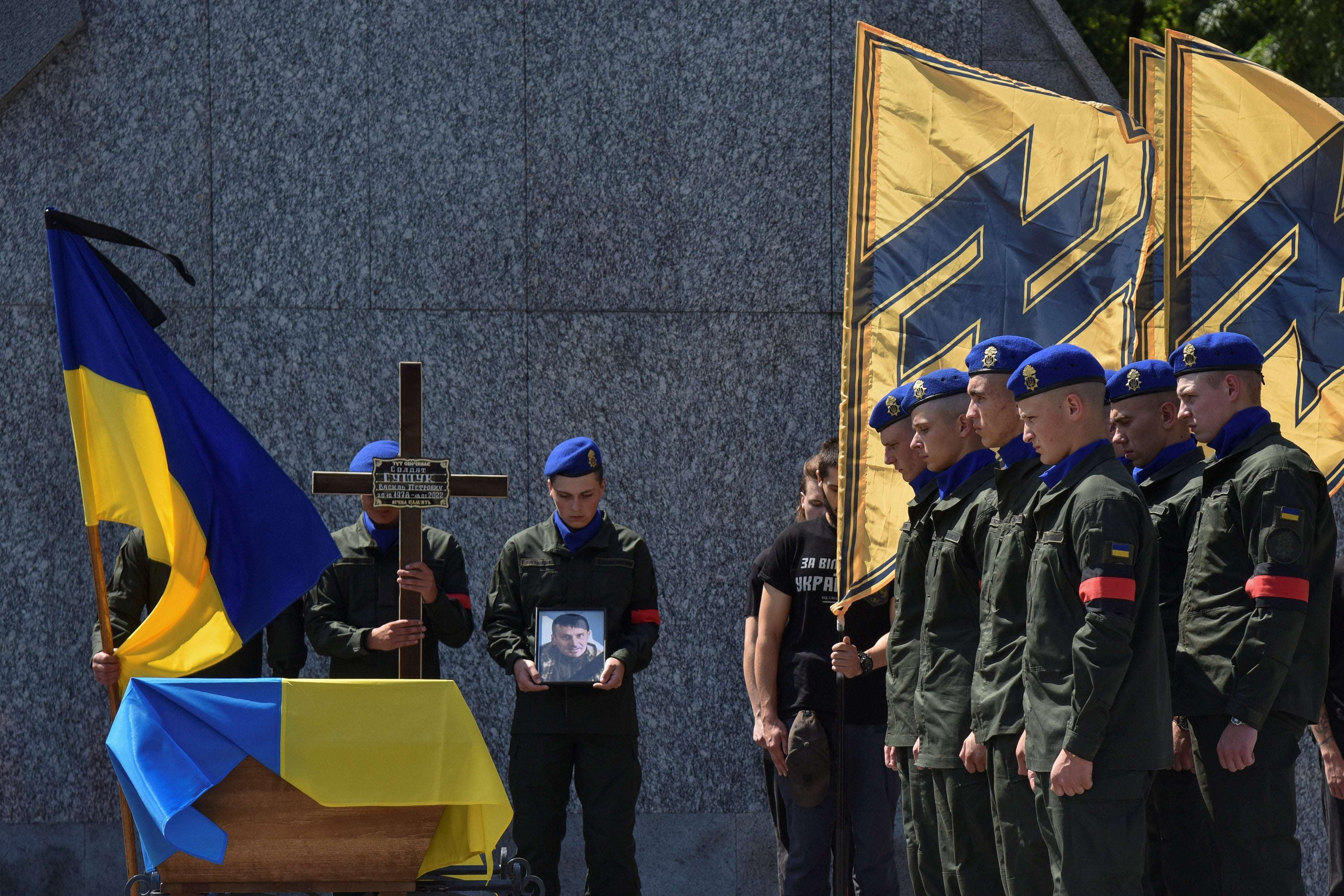Meta takes Ukraine’s controversial Azov Regiment off its dangerous organizations list The change will allow members of the unit to create Facebook and Instagram accounts.
Facebook parent company Meta has removed the Azov Regiment, a controversial unit within the Ukrainian National Guard with alleged far-right political leanings, from its list of dangerous individuals and organizations. The move, first reported by The Kyiv Independent, means members of the unit can now create Facebook and Instagram accounts and post without Meta automatically flagging and removing their content. Additionally, unaffiliated users can praise the Azov Regiment, provided they abide by the company’s Community Standards.
“The war in Ukraine has meant changing circumstances in many areas and it has become clear that the Azov Regiment does not meet our strict criteria for designation as a dangerous organization,” a company spokesperson told The Kyiv Independent. Meta did not immediately respond to Engadget’s comment request.
Sharing more information on the policy change, Meta told The Washington Post it recently began to view the Azov Regiment as a separate entity from other groups associated with the far-right nationalist Azov Movement. Specifically, the company pointed to Ukraine's National Corp political party and founder Andriy Biletsky, noting they’re still on its list of dangerous individuals and organizations. “Hate speech, hate symbols, calls for violence and any other content which violates our Community Standards are still banned, and we will remove this content if we find it,” Meta said.
Turn on browser notifications to receive breaking news alerts from Engadget You can disable notifications at any time in your settings menu. Not now Turned on Turn on
Important news from @Meta — changes in platform’s policies. Azov regiment no longer meets designation as dangerous organization. Means a lot for every Ukrainian. New approach enters the force gradually. Big contribution @nickclegg & his team in sharing truthful content about war. — Mykhailo Fedorov (@FedorovMykhailo) January 19, 2023
The Azov Regiment was founded in 2014 by Biletsky following Russia’s annexation of Crimea and the start of the Donbas War that same year. Before the unit was integrated into Ukraine’s National Guard in November 2014, it was controversial for its adherence to neo-Nazi ideology. In 2015, a spokesperson for the Azov Regiment said 10 to 20 percent of the unit’s recruits were self-professed Nazis. At the start of the 2022 conflict, Ukrainian officials said the Azov Regiment still had some extremists among its ranks but claimed the unit had largely become depoliticized. During the months-long siege of Mariupol, the Azov Regiment played a prominent role in the city’s defense. Russia captured many of the battalion’s fighters at the end of the battle.
The change underscores just how much Meta’s content moderation policies have changed since the start of Russia’s invasion of Ukraine. Partway through last year, the company began temporarily allowing people in Ukraine and a handful of other countries to call for violence against Russian soldiers. After the decision created controversy, Meta said it would turn to the Oversight Board for policy guidance, a request the company later withdrew, citing “ongoing safety and security concerns” related to the war.

ericchen on January 22nd, 2023 at 06:04 UTC »
What does this change? Does this mean that they can buy Facebook ads now?
Square-Pipe7679 on January 22nd, 2023 at 06:03 UTC »
For anyone wondering why remnants of Nazi symbolism and ideology have such attraction amongst some people across Eastern Europe but particularly in the Baltics, Ukraine and parts of Poland, it’s because prior to Operation Barbarossa in the 40’s, the Soviets had been running things in those regions, and they managed to rule so horrifically that it made siding with the 3rd Reich seem like the more pleasant option to a lot of people
After world war 2 the Soviets doubled down on being the authoritarian force they had been prior, and this cemented a view amongst many (who were not Russian) that anything that stood against the Soviets and to a lesser degree the presence of Russia as a major power in Eastern Europe was a better alternative to what they were living with under the USSR
once the USSR collapsed and ordinary people had less oversight from state agencies and Nationalist sentiment began to resurge, groups focused on the ideas previously mentioned (Anti-Soviet, Ultra-Nationalist and Anti-Russian influence) began to congregate and grow their circles, primarily using the symbolism and ideals of groups who had previously faced the Russians alongside the Nazis
An interesting parallel of this phenomenon is how in the West post-war there were many groups that idealised Communism and the USSR, as despite the USSR also being an authoritarian state responsible for countless atrocities, they had fought the Nazis (considered the greater evil from a western perspective as western nations in Europe had only experienced invasion and occupation by Nazis) and so lay on the “good” side of history and still held positive PR with some groups in the West even through the Cold War.
TLDR: Nazis in Eastern Europe are partly a consequence of historical Soviet oppression, partly due to a resurgence in nationalism and post-soviet identity politics, and partly as a bizarre parallel phenomenon to the establishment and spread of Socialist and communist groups in Western Europe
canseco-fart-box on January 22nd, 2023 at 04:07 UTC »
Fact: when they were founded and for a good portion of their history they were very much a Neo-Nazi organization
Also fact: since being formally incorporated into the Ukrainian National Guard as a unit subordinate to the normal military command structure they have largely been purged of their neo-Nazi members and leadership. The regiment that defended Mariupol was not the same one that was founded when the war first broke out in 2014